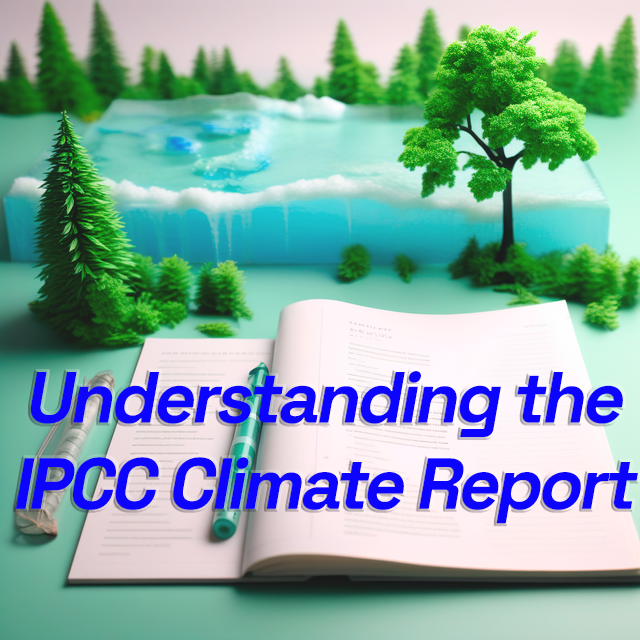The release of the Intergovernmental Panel on Climate Change’s (IPCC) Sixth Assessment Report (AR6) signifies a crucial moment in understanding the impact of greenhouse gas (GHG) emissions on our planet. As we begin to understand the report. In this summary we uncover both the alarming consequences and the potential for positive change. This article aims to dissect the key takeaways, emphasising the urgency for transformative action.
To find out more about Carbon Literacy Training click here: Carbon Literacy Training
The AR6 Overview
The IPCC's AR6 outlines the grim reality of escalating GHG emissions globally and the imminent, irreversible risks we face if decisive measures are not taken. However, it also illuminates pathways to mitigate these risks, asserting that a safe, liveable future is within our reach.
Key Takeaways
1. Climate Overshoot
Climate overshoot refers to the period when global warming exceeds the 1.5°C mark, followed by a subsequent cooling.
Risks and Implications
Approximately 90% of climate models predict overshoot, posing risks such as triggering irreversible tipping points.
Overshooting demands costly, unproven technologies like carbon capture to counteract CO2 levels.
Urgency
Swift attainment of net-zero is imperative to prevent irreparable consequences.
Every increment of global warming and each passing year significantly impact our ability to reverse overshooting.
2. Empowering Individuals
Personal Actions Matter
The IPCC underscores the influential role of individual actions in curbing emissions.
Shifts to plant-based diets, reduced air travel, and the development of walkable, bikeable cities can collectively cut 40 to 70% of projected 2050 emissions.
3. Systemwide Transformations
Diverse Emission Sources
Fossil fuels contribute significantly, but deep cuts across all sectors (power, buildings, industry, transport) are vital.
Adaptation measures should catalyse systemic changes and ensure equitable distribution across at-risk regions.
Synergies
Transformational mitigation aligns with adaptation efforts, creating synergies for effective climate action.
4. Climate Finance Imperative
Current Disparities
Fossil fuel financing surpasses climate mitigation and adaptation funding.
The IPCC calls for a 3 to 6 times increase in climate finance by 2030 to meet global climate goals.
5. Long-term Impact
Thousand-Year Consequences
Sustained warming of 2 to 3°C threatens irreversible loss of Greenland and West Antarctic ice sheets.
Urgent government commitments before 2030 are crucial to achieving net-zero by 2050 and limiting warming to 1.5°C by 2100.
Call to Action
The urgency conveyed by the IPCC report requires immediate, collaborative action. Governments, businesses, and individuals must align efforts to achieve net-zero, prioritize systemic transformations, and significantly enhance climate finance.
Conclusion
As stewards of the planet, we must internalize the urgency outlined by the IPCC. This article serves as a call to action, urging everyone to contribute to a sustainable future. The power to change lies in our collective hands, and the time for transformation is now.
Carbon Literacy Training
Carbon Literacy Training is a great way to start your journey towards carbon net zero. It is a way to engage you staff and encourage then to help you identify ways to reduce your carbon emissions and very often reduce your business expenses.
To find out more about Carbon Literacy Training click here: Carbon Literacy Training
Special Offer to Businesses
We are keen to help as many people as possible become Carbon Literate. To make this financially viable for the businesses we will consider accepting payment for the training in the form of inventory or store gift cards. By doing this we reduce the cash expense to the business, move some inventory and we receive value for our efforts. For more information about this please contact me at ian@positivecarbonimpact.com
To find out more about Carbon Literacy Training click here: Carbon Literacy Training



Comments